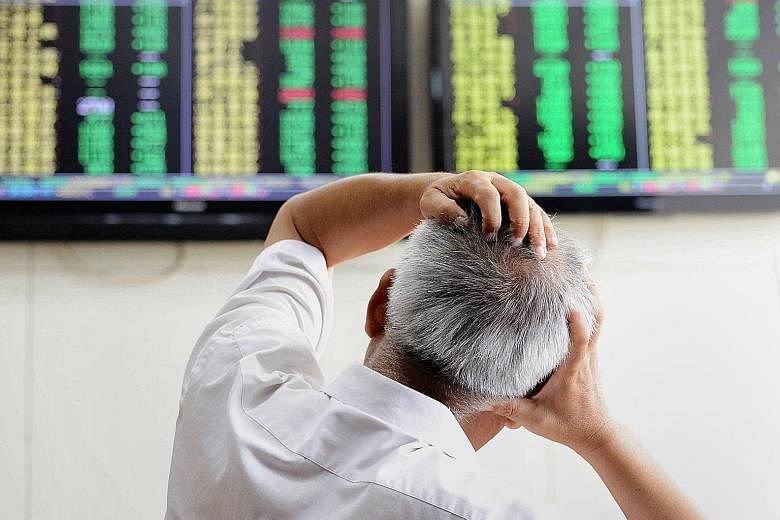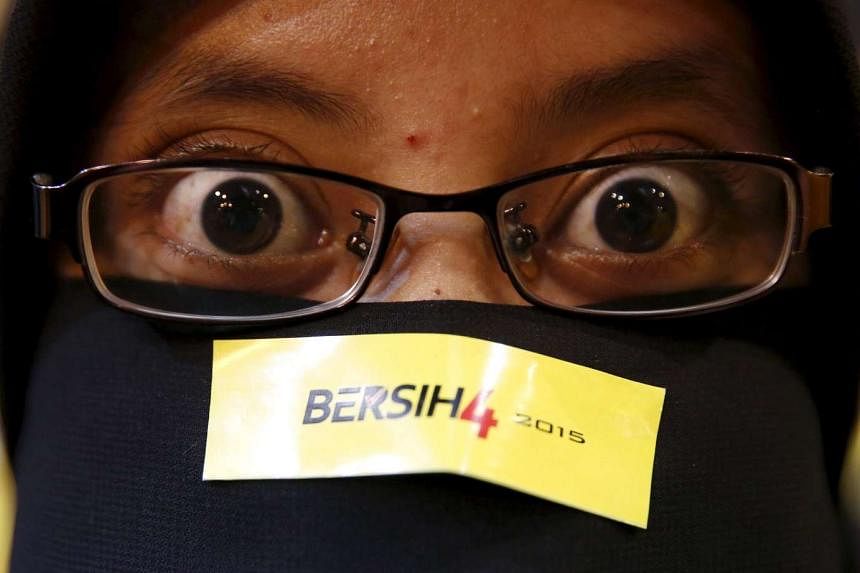The full force of the global selldown hammered Asian markets last month, leaving many with their biggest monthly losses in more than three years.
China was central to the turmoil after its shock move to devalue the yuan and the underlying worries over its slowing economic growth.
The Shanghai Stock Exchange Composite Index was sent reeling, plunging 12.5 per cent in August - a close second to July's 14 per cent loss, which was its largest drop since August 2009.
Shenzhen stocks tumbled a whopping 15.2 per cent, while Hong Kong shares posted their worst monthly record since September 2011, falling 12.04 per cent.
Markets elsewhere in the region were similarly battered: Japan lost 8.2 per cent, India 6.6 per cent, Taiwan 5.7 per cent and South Korea 4.37 per cent.


Closer to home, Malaysia fell 6.4 per cent, Indonesia 6.1 per cent and Thailand 4.7 per cent.
Singapore's Straits Times Index also took a hammering, ending 8.8 per cent down for the month, wiping $74.3 billion off the market capitalisation of shares in the process.
Some of the top listed counters here have logged heavy losses in terms of market capitalisation. Singtel, for example, shed 8.6 per cent, while DBS Group lost 12 per cent.
"Markets in the region had not expected this 'black swan' from China, which is so integrated into the global economy," CMC Markets analyst Nicholas Teo told The Straits Times.
"With the recent terror (attack) in Thailand, the mass protests in Malaysia, it may well seem that Asia is becoming a place for global investors to avoid.
"(Markets in the region) remain in a game of moving parts - they won't settle until there is a period of consolidation.
"But once that happens, we can likely see things pick up."
Remisier Alvin Yong said Asian bourses are generally expected to underperform this year as the greenback continues rising.
All eyes will remain on the impending United States Federal Reserve interest rate hike, he added.
Mr Stanley Fisher, the United States Federal Reserve's vice-chairman, said over the weekend that there is "good reason to believe that inflation will move higher" - suggesting that a September interest rate hike is still on the table.
"But investors are still adopting the wait-and-see approach for now, which accounts for the bearish overhang we see in the regional markets," said Mr Yong.
He noted that while the same uncertainty is likely to persist in the Singapore market, there is also "a lot of value in the market right now".
"Many of the stock prices have come down significantly and this gives rise to opportunities for investors," he said.
Pointing to names such as Olam International and Ezra Holdings, which recently announced partnerships with Japanese companies, Mr Yong added that other companies may likewise draw on such corporate actions to "unlock value for shareholders".



